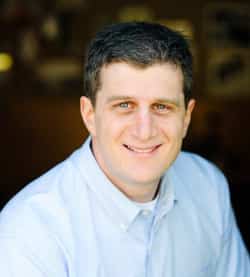 Dr. Brian Wolff will be speaking about children and anxiety on the Mackintosh campus on October 24, from 6-8 pm. Dr. Wolff is a Licensed Clinical Psychologist and the owner of Wolff Child Psychology He collaborates with families in supporting the academic, cognitive, social-emotional and behavioral needs of children and teenagers.
Dr. Brian Wolff will be speaking about children and anxiety on the Mackintosh campus on October 24, from 6-8 pm. Dr. Wolff is a Licensed Clinical Psychologist and the owner of Wolff Child Psychology He collaborates with families in supporting the academic, cognitive, social-emotional and behavioral needs of children and teenagers.
We interviewed Dr. Wolff about his experience working with children and anxiety. We look forward to welcoming him to campus on October 24. (For more details on the event, please go to our Facebook event page. Child care is available; contact frontoffice@mackintoshacademy.com for information.)
View Dr. Wolff’s slides here.
Q: Can you tell us about yourself and your experience as a psychologist?
A: I graduated from Yale University in 2000 with dual majors in Psychology and Sociology. After a few years working with children in residential treatment centers in San Francisco, I moved to Denver to start the Child Clinical Psychology Ph.D. program at the University of Denver. During my 6 years at DU, I received strong clinical training in a number of areas, including assessment of ADHD and Dyslexia, as well as assessment and therapy for childhood anxiety, depression, and disruptive behavioral problems. After receiving my Ph.D., I taught for 6 years in the DU Psychology Department, including courses on child development, motivation and emotion, and childhood psychological disorders. At the same time, I completed post-doctoral training at JFK Partners at the University of Colorado on the Anschutz campus, which focused on Autism Spectrum Disorder and other developmental disabilities. In 2011, I started Wolff Child Psychology, a child and family psychology practiced specializing in diagnostic/psychoeducational evaluations, evidence-based therapy, and treatment and educational planning. Over the past 7 years, Wolff Child Psychology has grown to a team of 8 psychologists. We take on a large range of therapy and evaluation cases, and have grown in our connections to the community, including parent and teacher trainings/conferences at schools.
Q: What have you observed in your practice regarding children and anxiety?
A: Anxiety comes from a combination of intense worry about one or multiple situations along with the development of avoidance patterns. Many people don’t understand or appreciate how impairing avoidance can be. For example, many parents will unknowingly facilitate the child avoiding things about which they are worried in the effort of easing their pain. However, in many circumstances, that avoidance makes the feared situation scarier in the child’s mind, and can limit their opportunity to learn from taking risks and from making mistakes. We work with parents to empower their children to be brave and to recognize the power in taking risks and learning from mistakes.
Q: What are some signs that a child might be experiencing anxiety?
A: Usually we see anxiety first in a child’s avoidance strategies. They may “act out” to avoid doing something about which they are worried. They may also “check out” of situations, thus cognitively avoiding the fear-eliciting situations. Sometimes children may express their worries verbally and directly, though that tends to be more the exception rather than the rule, thus requiring parents and teachers to interpret outward behavioral signs.
Q: Do gifted children experience or demonstrate anxiety differently from other children?
A: Yes and no. For the most part, anxiety is experienced similarly across populations. Gifted children may have more of a tendency toward perfectionism, which is definitively associated with performance anxiety. The downside to perfectionism is that when the child believes or realizes that they cannot complete something perfectly, they will likely avoid the situation by quitting, scratching out all of their work and saying they can’t do it, and/or attempting to avoid similar situations in the future. Also, excessive reassurance seeking from teachers can be a clear sign of anxiety, as the child seems to have considerable difficulty sitting with the ambiguity as to whether they have completed a task correctly or not.
Q: What is one thing that a parent can do to help a child experiencing anxiety?
A: Stay calm during intense moments of anxiety and through words and actions remind the child that instances of anxiety (and panic) pass. Our bodies can only sustain intense anxiety for 60-90 minutes. This principle is important in evidence-based anxiety therapy, as we help children sit with their intense anxious feelings while taking the risks that produce anxiety for them. Kids just want to know that you know a situation is safe and secure. That will help them stick with taking risks and to stop engaging in avoidance strategies.
Q: Are there any myths or misperceptions around this topic that you’d like to clear up?
A: Not necessarily. I hope through the various pieces I’ve already outlined here that parents and teachers can better understand how anxiety can impact a child not just through the impact of worrying but also through the impact of avoidance. Cognitive or physical avoidance not only keeps a child from facing his or her fears and learning to master his or her intense emotions, but it also can keep a child from learning and engaging in the curriculum (e.g., if they are staring out the window or leaving the class to use the bathroom excessively due to avoidance, then they are not learning).
[av_button label=’RSVP Now’ link=’manually,https://www.facebook.com/events/1911062855870245/’ link_target=’_blank’ size=’medium’ position=’center’ icon_select=’yes’ icon=’ue80c’ font=’entypo-fontello’ color=’theme-color’ custom_bg=’#444444′ custom_font=’#ffffff’]
